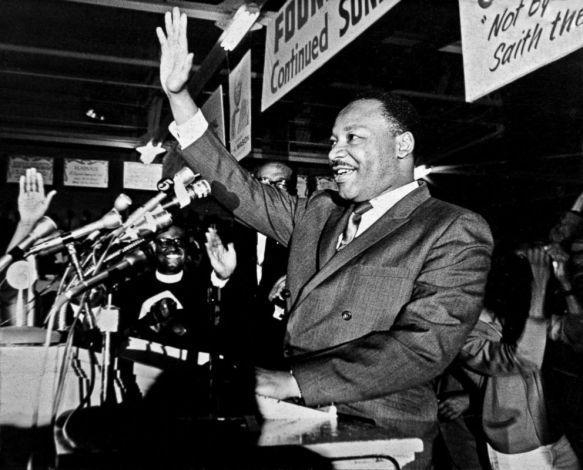On the 91st anniversary of Dr. Martin Luther King Jr.’s birth on January 15, we reflect on his life’s pursuit of liberty, justice, equality for all and service to others.
Dr. King’s life was cut short in 1968 at the age of 39 in Memphis, Tennessee. At the invitation of the American Federation of State, County and Municipal Employees (AFSCME, DC 37’s national union), Dr. King traveled to support Black sanitation workers who were striking for fair wages, safe working conditions and the right to belong to a union.
He embraced labor’s cause as a microcosm of the struggles his upcoming Poor People’s Campaign would amplify. Dr. King recognized that, “The labor movement was the principal force that transformed misery and despair into hope and progress.”
Organizer T.O. Jones, AFSCME’s Bill Lucy and others, helped Memphis workers craft the now famous campaign slogan: I AM A MAN. This statement was a demand the 1,300 Black Sanitation workers put forth for the city of Memphis to recognize and respect their human dignity and equality.
“You are reminding not only Memphis, but you are reminding the nation that it is a crime for people to live in this rich nation and receive starvation wages,” Dr. King said.
Dr. King connected the struggle for civil rights and labor rights with economic equality, and was a staunch opponent of so-called “right-to-work” laws that make it difficult for workers to organize.
“In our glorious fight for civil rights, we must guard against being fooled by false slogans, such as ‘right to work’,” Dr. King said in 1961. “It is a law to rob us of our civil rights and job rights. Its purpose is to destroy labor unions and the freedom of collective bargaining by which unions have improved wages and working conditions of everyone…Wherever these laws have been passed, wages are lower, job opportunities are fewer and there are no civil rights… We demand this fraud be stopped.”
Dr. King’s resolve to support unions despite threat and danger to himself and his young family cost him his life. His legacy is forever tied to AFSCME and to workers’ rights.
Dr. King led a movement that changed America for the better. He and other activists blazed a wide swath of changes to federal laws supporting civil rights, voting rights, racial and gender equality, fair housing and more.
And since then America’s conservative right has continued to swing the pendulum back and revoke the laws, protections and policies that help organized labor and working families, women and immigrants, people who are poor, children and senior citizens.
As we face the challenges that lay ahead, we do well to reflect on Dr. King’s legacy, his ideals and principles that remain viable to strengthening unions.


